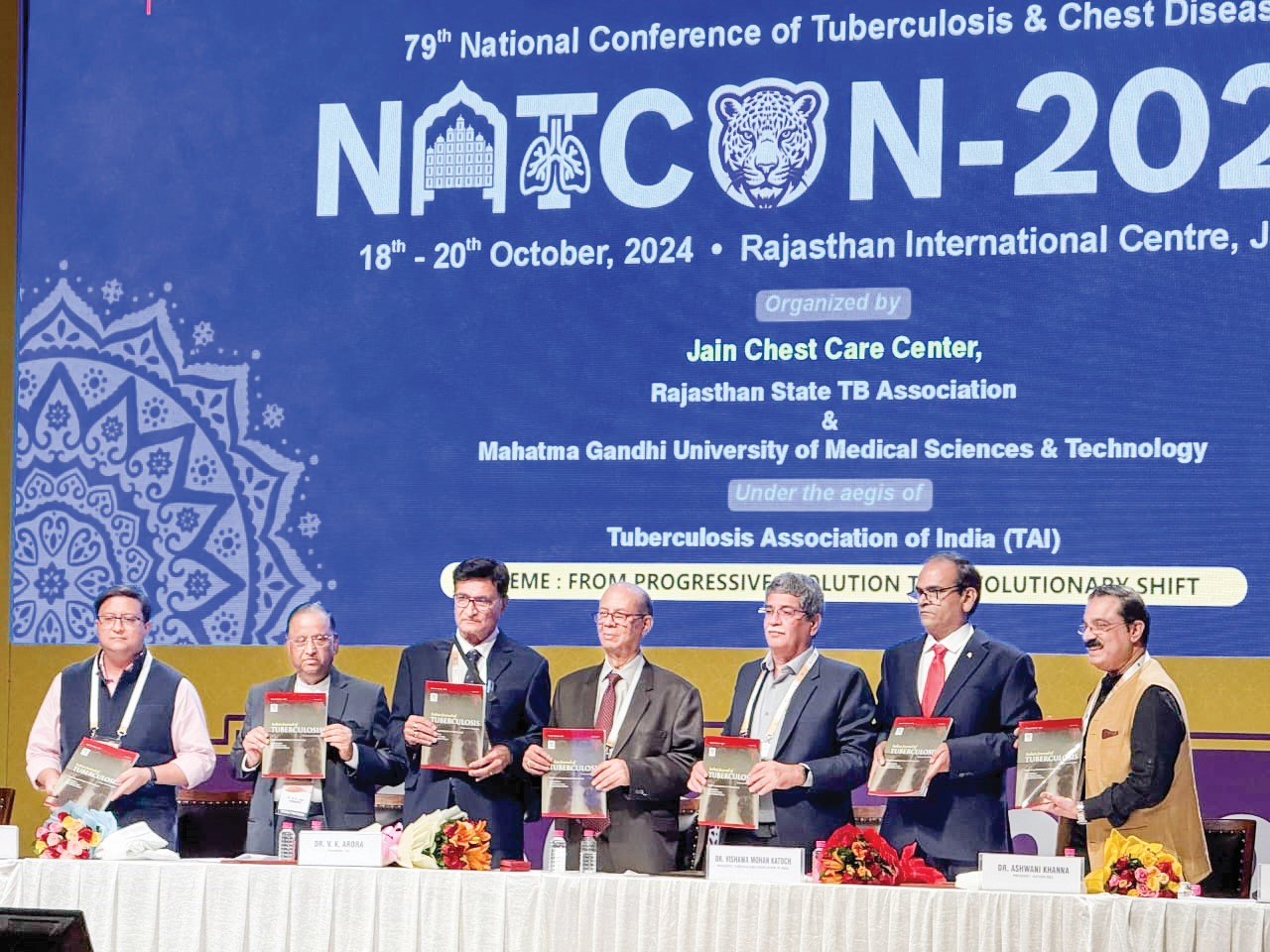The National Conference on Tuberculosis and Chest Diseases (NATCON 2024) took place in Jaipur from October 18th to 20th, gathering esteemed experts and professionals in pulmonary medicine. The conference focused on recent advancements in the diagnosis and treatment of various respiratory diseases, including tuberculosis, COPD, asthma, lung cancer, interstitial lung disease, obstructive sleep apnea, and occupational lung diseases.
The conference began with a session on tuberculosis, emphasizing recent breakthroughs in diagnosis and treatment. Dr. Nirmal Jain, Chief Patron of NATCON 2024, highlighted the importance of early detection and effective management of TB through modern molecular techniques such as GeneXpert and whole-genome sequencing. The Xpert MTB and Xpert XDR technologies, which can provide results in two hours and detect resistance to Rifampicin, were particularly noted for their potential to revolutionize TB diagnosis.
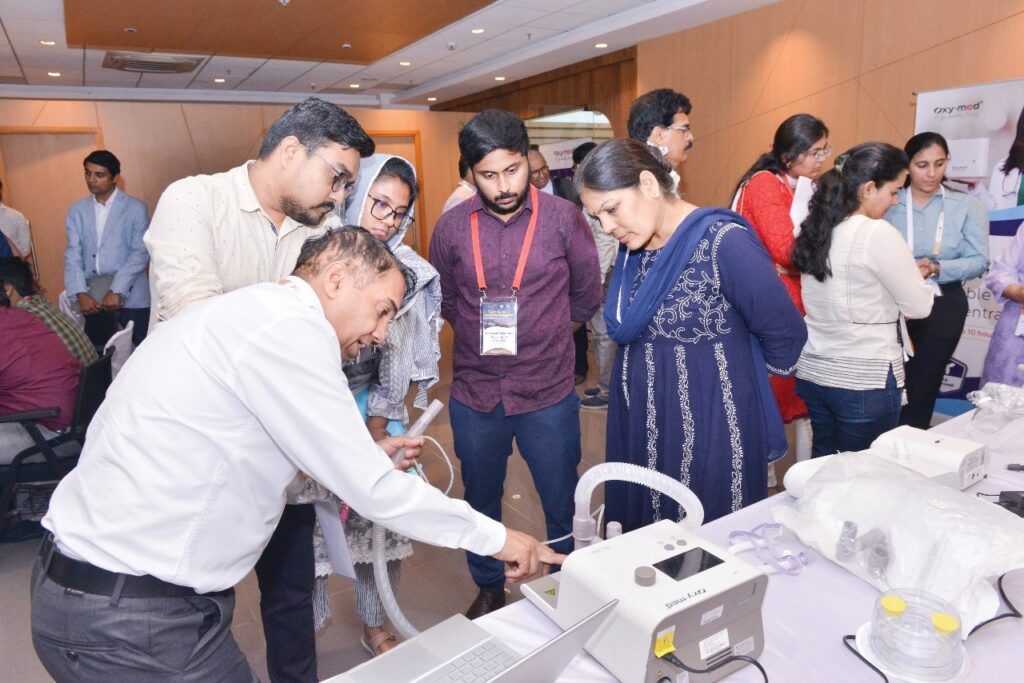
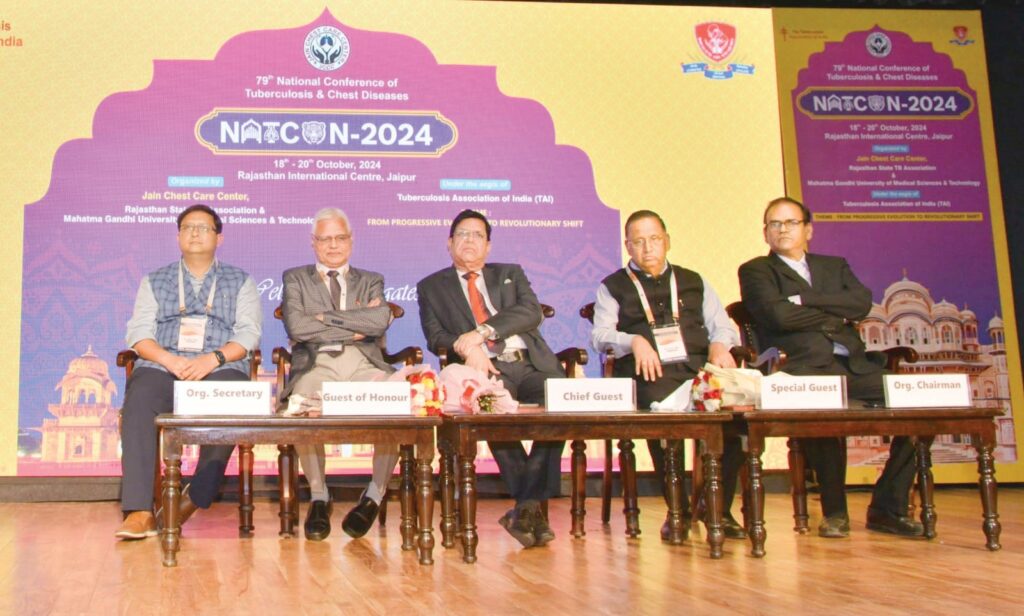
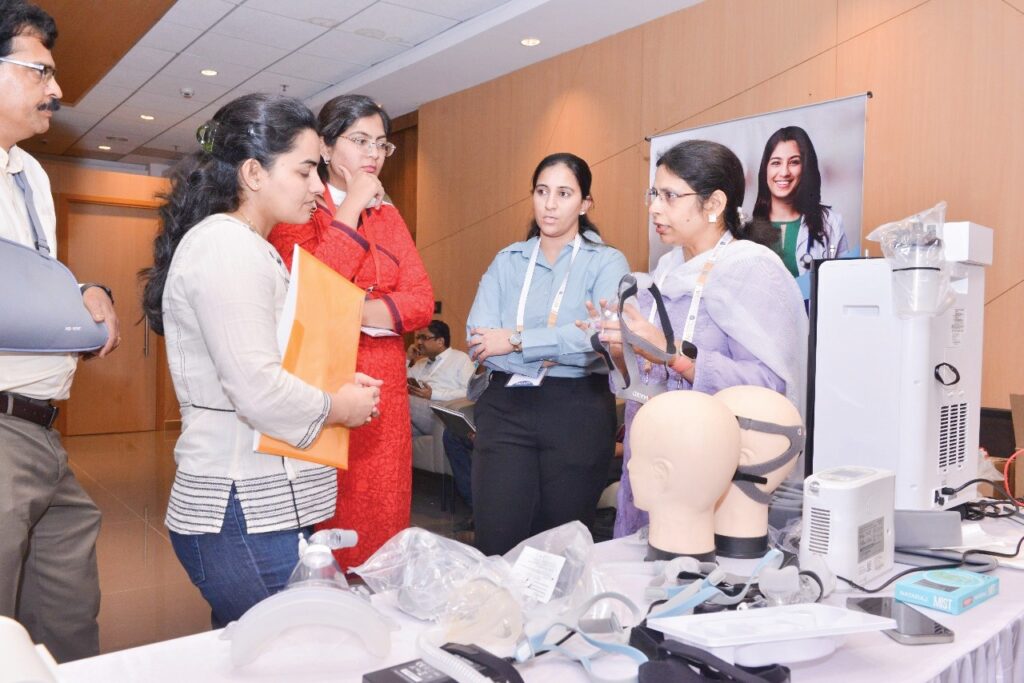
Dr. Diyah Handayani from Indonesia discussed the Effective Treatment of Drug-Resistant TB with the BPAL/M regimen, a novel treatment recommended by the World Health Organization. This regimen, which includes Bedaquiline, Pretomanid, Amoxicillin/Clavulanate, Linezolid, and Moxifloxacin, is effective for multidrug-resistant and extensively drug-resistant TB. It offers benefits such as higher efficacy, a shorter treatment duration (6-9 months), and reduced side effects.
Organizing Secretary Dr. Nitin Jain and Chairman Dr. Mahesh Mishra emphasized the need to optimize management in COPD and asthma, which are leading causes of morbidity and mortality among chest diseases. They discussed personalized treatment approaches, advances in inhaler technology, lung function testing, and the COPD-asthma overlap syndrome.
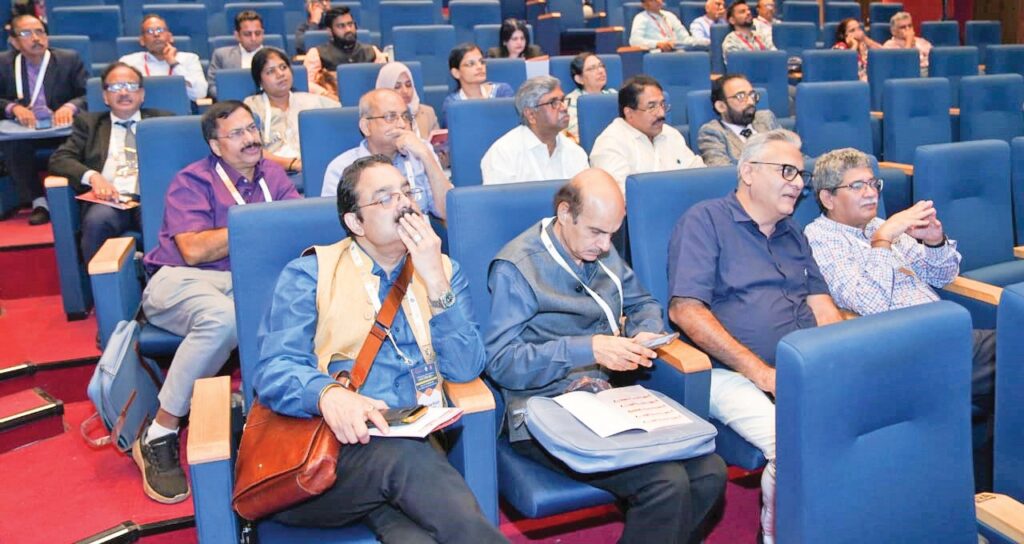
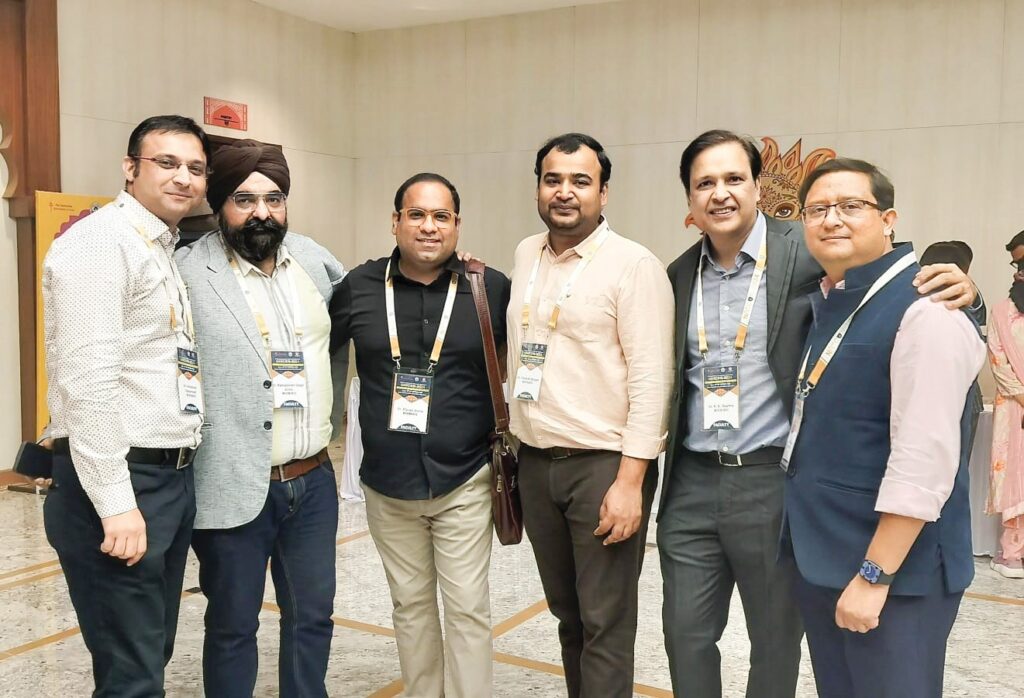
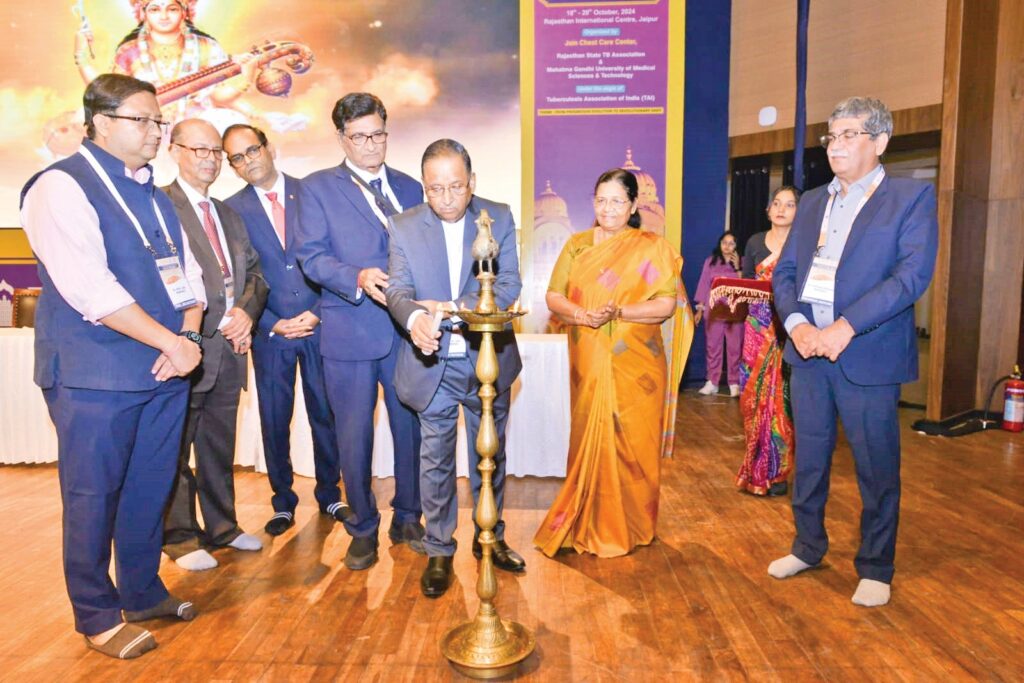
Recent advancements in interstitial lung disease (ILD), including interstitial pulmonary fibrosis, connective tissue disorder-associated ILD, and sarcoidosis, were also highlighted. Non-pharmacological therapies such as quitting smoking, avoiding allergens, and using supplementary oxygen have become essential parts of management. In addition to drugs like Nintedanib and Perfenidone, lung transplantation has emerged as a viable option for patients with advanced ILD, significantly improving their quality of life.
The conference featured key orations, including the SN Tripathi Oration by Dr. Nasir Yusuf, the Dr. PK Sen Tai Gold Medal Oration by Dr. V Bhanurekha, and the Dr. SP Agarwal Tai Oration awarded to Dr. Sangeeta Sharma for her commendable work on pediatric tuberculosis.
Emerging trends and therapies in lung cancer were discussed, focusing on screening and early detection, targeted therapies for EGFR, ALK, and KRAS, immunotherapy with checkpoint inhibitors, and advancements in minimally invasive surgical techniques. Hands-on workshops on obstructive sleep apnea were held, exploring non-invasive ventilation, oral appliance therapy, and surgical options such as Uvulo-palato-pharyngoplasty and hypoglossal nerve stimulation.
A dedicated session addressed occupational lung diseases, emphasizing prevention and protection strategies for silicosis, asbestos-related diseases, pneumoconiosis, work-related asthma, and workplace safety regulations. Experts also advised caution regarding the complex relationship between diabetes and tuberculosis, highlighting that diabetes can increase the risk of developing TB and worsen treatment outcomes. They recommended screening for TB in diabetic patients and optimizing diabetes management during TB treatment.
The conference was inaugurated by Member of Parliament Mrs. Manju Sharma, who acknowledged Prime Minister Narendra Modi’s vision for a TB-free India and commended the Tuberculosis Association of India’s efforts in supporting government initiatives for TB prevention and control.
A panel session discussed the implications of the National Medical Commission’s decision to remove Respiratory Medicine from the MBBS curriculum, with the Indian Chest Society and the Tuberculosis Association of India opposing this move, stating that it could hinder future treatment of respiratory diseases.
Various training sessions on bronchoscopy, pleuroscopy, non-invasive ventilation, sleep studies, and endobronchial ultrasound were also conducted, along with discussions on topics such as the impact of TB on lungs, pulmonary thrombosis, TB vaccines, and lung nodules.
The closing ceremony featured chief guest Dr. S.S. Agarwal and guest of honor Dr. S.P. Luhadiya. Dr. Agarwal emphasized the ongoing fight against TB and lung diseases, urging doctors to continue serving patients with new technologies and treatments. Dr. Luhadiya expressed gratitude to the organizing committee for the successful execution of NATCON 2024.
Key takeaways from NATCON 2024 included the need for multidisciplinary collaboration, early detection and prevention, personalized treatment approaches, and continued research and innovation. The conference provided a platform for knowledge sharing, networking opportunities among experts, and inspiration for the next generation of pulmonologists, shaping the future of lung health in India.

